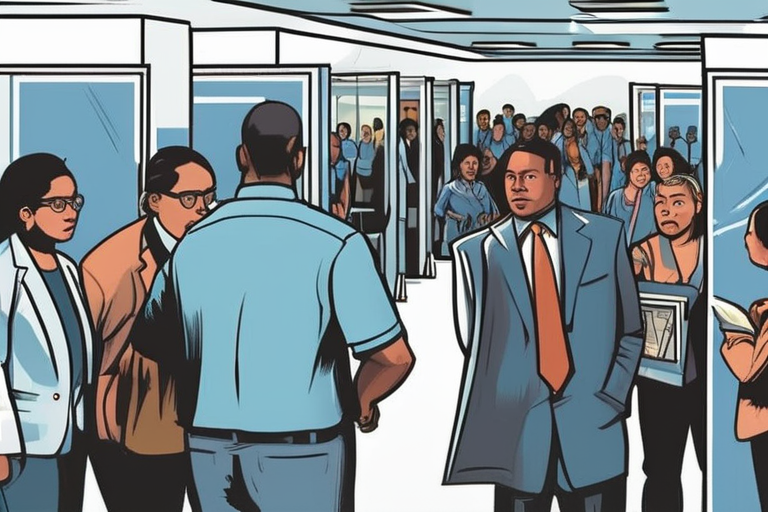Shares of Latino Republican voters have been declining in recent months, with some party officials expressing concern over the impact of the second Trump administration's ongoing campaign of mass deportations on the party's future. According to recent polls, the number of Latino voters identifying as Republicans has decreased by nearly 10% since the 2020 election.
The debate over how to address the issue has been ongoing within the party, with some officials arguing that the administration's actions are a necessary step to enforce immigration laws, while others believe it is a misguided policy that will ultimately harm the party's chances with Latino voters. "We need to be honest with ourselves about the impact of these policies on our party's future," said one Republican strategist, who wished to remain anonymous. "If we continue down this path, we risk alienating a critical voting bloc that could make all the difference in future elections."
On the Democratic side, the debate has centered on how to frame the Trump administration's mass deportations, with some arguing that it is an overreach of executive power and a threat to the rights of law-abiding residents, while others believe it is a necessary step to protect the country's borders. "The Trump administration's actions are a clear example of the dangers of unchecked executive power," said a Democratic Party spokesperson. "We need to stand up for the rights of all Americans, regardless of their immigration status."
The Trump administration's mass deportations have been a contentious issue since the start of the second term, with critics arguing that the policy is overly broad and targets not only undocumented immigrants but also U.S. citizens and lawful permanent residents. According to a recent report, the administration has deported over 500,000 individuals since the start of the year, with many more facing deportation proceedings.
Background on the issue dates back to the 2020 election, when Latino voters played a crucial role in deciding the outcome of several key battleground states. Since then, the Trump administration has continued to push for stricter immigration laws and increased enforcement, leading to a decline in Latino support for the party. "The Trump administration's policies have been a disaster for Latino voters," said a Democratic Party official. "We need to take a more nuanced approach to immigration that recognizes the contributions of all Americans, regardless of their immigration status."
Additional perspectives on the issue come from within the Republican Party itself, with some officials arguing that the party needs to take a more moderate approach to immigration in order to appeal to Latino voters. "We need to be a party that welcomes all Americans, regardless of their immigration status," said a Republican Party official. "We can't afford to alienate a critical voting bloc like Latino voters."
The current status of the issue remains uncertain, with the Trump administration continuing to push for stricter immigration laws and increased enforcement. Meanwhile, the Democratic Party is gearing up for the 2026 midterm elections, with immigration likely to be a key issue in several battleground states. As the debate over mass deportations continues, one thing is clear: the future of US politics hangs in the balance, and the answer to the question of how to address the issue will have far-reaching consequences for both parties.



























Share & Engage Share
Share this article